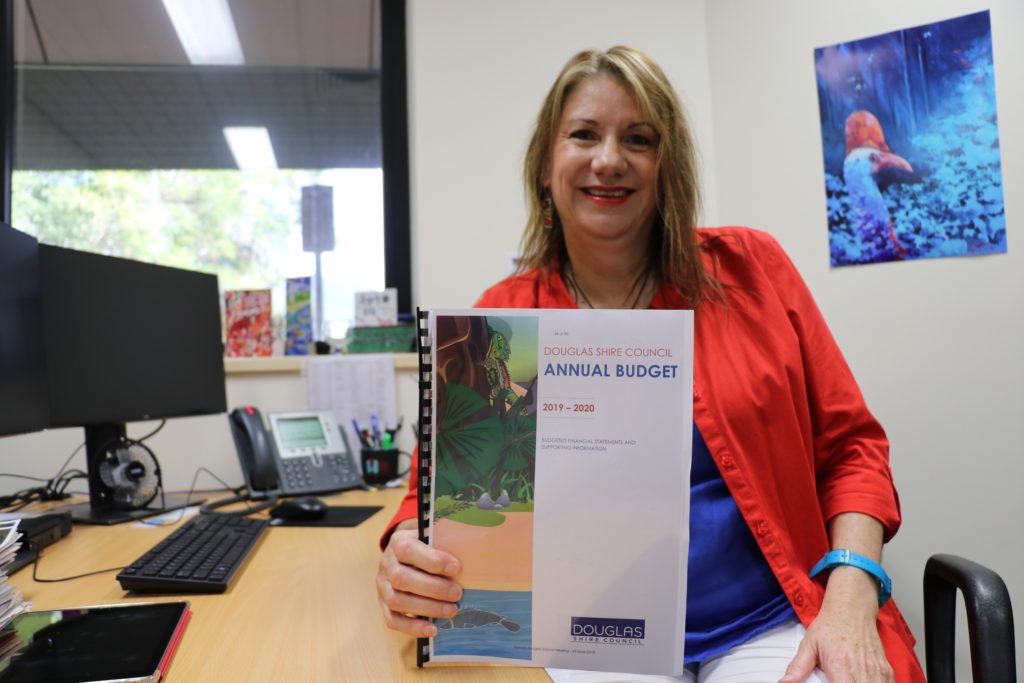Douglas Shire Council handed down its first budget surplus since de-amalgamation, hitting its five-year target of financial sustainability and restricting the rate rise to the lowest level in recent years.
The milestone caps off a long journey that begun in 2014, when Council wore a $5.2 million deficit after parting ways with Cairns Regional Council.
During that time, Council delivered three record capital works programs, achieved debt-free status and carried the region through unprecedented severe weather events.

The 2019-20 Annual Budget details Council’s aim to report an operating surplus of $179,332.
The $45.15 million budget will inject a further $15.34 million worth of projects and plans to achieve about 40 operational initiatives.
Douglas Shire Mayor Julia Leu said getting the budget back in the black was one of her Council’s proudest achievement.
“We promised we would give the people of Douglas Shire a financially sustainable local government and we have delivered,” she said.
“Council has chipped away at that deficit for five years and this latest budget puts us in a position that we have fiercely strived for.
“My fellow Councillors and Council staff have worked incredibly hard to get this fantastic outcome for Douglas Shire.”
The capital works program features a $5.6 million investment in essential infrastructure such as roads, bridges and drains, $1.97m to improve water security and $933,000 towards sewerage services.
Council will also tip another $810,000 into tourism marketing and events.

“What is particularly pleasing is we have been able to push almost $3 million into our region’s public spaces to improve lifestyle for our residents,” Mayor Leu said.
“This means better playgrounds, more appealing parks and gardens, improved disability access and greater opportunity around sports and recreation.”
Council has restricted general rate increases to 1.8% and again worked hard to minimise the impact of recent shire-wide rural land revaluations.
For a Residential 1 category that receives the minimum general rate and utilities charges, this equates to an increase of $1.15 per week.
Utility charges for water, sewerage and waste will increase 2.5%.
Button Text
